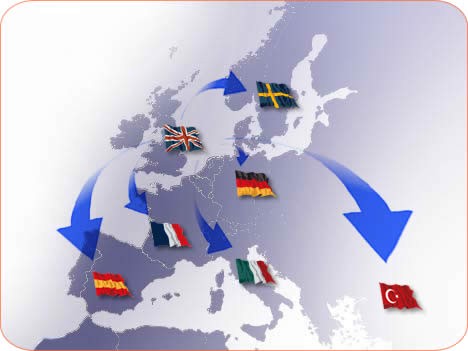European Markets
Post on: 13 Июнь, 2015 No Comment

European markets attract many investors because they are generally economically stable and home to some of the largest corporations in the world: BP, Volkswagen, Allianz, Siemens, Statoil and BASF to name a few. Plus, 7.3% of the world’s population resides there and represents 20% of the global gross national product.
For many American investors, it represents a home away from home for a portion of their portfolios. European markets often dance to the beat of a different drum than the U.S. Therefore, if the U.S. is facing uncertainties on political or economic fronts, it’s a good idea to invest abroad in Germany, France, Greece, Italy, the U.K. etc. For example, our potential military intervention in Syria or the Federal Reserve’s efforts to slow down economic stimulation will have less effect on European markets than emerging markets.
However, it’s important to understand that some countries within Europe are more reliant on their neighbors and investments might move in tandem. On the other hand, some are completely independent and removed from what’s happening a few hundred miles away.
If you want to invest in a company based in Europe, you should learn about the same metrics as a domestically based company. Check its earnings report for:
- Price-to-earnings ratio (P/E)
- Price-to-sales ratio (PSR)
- Return on equity (ROE)
- Earnings growth
- Debt-to-asset ratio
- Free cash flow
Advantages in the European Markets
#1: 7.3% of world population resides there
#2: Home to large corporations.
#3: Generally stable, low correlation to NYSE.
You might want to invest in Europe using a mutual fund or ETF that holds a broad selection of stocks from many countries. That’s a pretty safe route to take. Examples include SPDR DJ Euro STOXX 50 (FEZ) and Vanguard European (VGK). If you are interested in a specific country, you can use ETFs that mirror some sort of index or stock category (small-cap, large-cap, etc.) i.e. iShares MSCI Germany Index (EWG) or Global X FTSE Greece 20 (GREK).
Also keep in mind that European markets and the Eurozone’s health can affect your U.S. investments. About 20% of the S&P 500 earnings come directly or indirectly from Europe. The financial sector is very vulnerable to euro distress. The largest U.S. institutions have billions of dollars in credit risks in five of the most endangered nations: Greece, Portugal, Ireland, Italy and Spain. They include: Bank of America, JPMorgan Chase, Morgan Stanley, Wells Fargo and Goldman Sachs.














